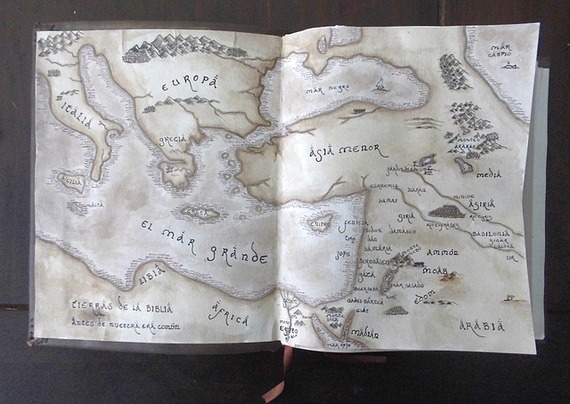What is the next step in your career?
It astonishes me how many people who claim to want a successful career turn up at their job every day, waiting for the Next Big Promotion to arrive on their doorstep. Like when they get three to five years into a role (or for Millennials, often one to two years), someone is going to come to their desk with a big gift wrapped box containing their ideal job description and a 20 percent pay raise.
Where does this fantasy of the Promotion Fairy come from?
If you're not actively planning your next career move, you can be pretty sure that nobody else is either. The time to start planning it is today, no matter whether you've been in your current role for one day or 10 years (assuming you want to progress further in the future).
Your career should be treated like a living, breathing entity -- a houseplant, or even a favorite pet. It will certainly occupy more of your time and attention than either of those, and it will grow and evolve over the years like any other living thing. As you get to know yourself better, and as you grow, so will your career aspirations. What seemed like a great life path when you were 18 and deciding on college majors may one day seem like the worst idea in the world - and then what?
If you have been tending to your career lovingly for many years, you will be able to visit your career map in light of this new discovery, decide what on the map still resonates with you and what doesn't (even massive changes will carry some elements of your "old life" into the new), and chart a new course.
If you have been coasting along in your career, never really being intentional about where the next turn is or what the eventual destination might be (or at least the next few stopovers), a revelation like this can blindside you and leave you feeling completely lost.
Even if you don't wake up one day and realize that you want to be a traveling acrobat instead of an accountant, having a career map helps you evaluate opportunities as they come along. Pretty much any job can be made to sound attractive with some creative copy writing and a few benefits that sound like you "should" want them! If you have at least a vague idea of where you're headed, you can avoid ending up in a role that just kills time, without contributing to your longer term goals.
So what does a career map look like?
Whatever your imagination wants it to look like. With a background in industrial chemistry, mine always looked suspiciously like a process flowchart... Hopefully your imagination is a little wilder than mine!
- Long term vision (this doesn't have to be the endgame, just far enough out to allow a few stops between now and then)
- A list of the gaps between that long term vision and where you are now (skills, knowledge, experience)
- A list of roles that would close one or more of those gaps (possibly selecting some as favorites)
- A selection of alternative routes - just like any GPS or mapping software would give you!
- Providing focus about what your next step should be - you are aiming for one of a short list of roles, so you can put your professional development efforts into activities that get you ready to take that next step. For example, if your next step is to lead a team, look for opportunities to lead project teams or mentor others in your current role.
- Gives you a point of reference for any opportunities that come to you. You can assess each opportunity against your short and long term goals to see if it will truly serve your purpose, or if you're just attracted to it because you are flattered that they asked.
Most importantly, remember that your career map is a living document. The version you create shortly after you land your first job should look very different to the version from a few years later. If you allow it to evolve gradually over time, it will serve you well through all the twists and turns on your journey, and will help you immensely should you ever decide to chart a completely different course.
To help you get started, I created a worksheet that you can download here: Career Map Worksheet.
What other tools do you use to keep your career moving forward? How effective have they been?
This article first appeared on Light Yourself Up.
